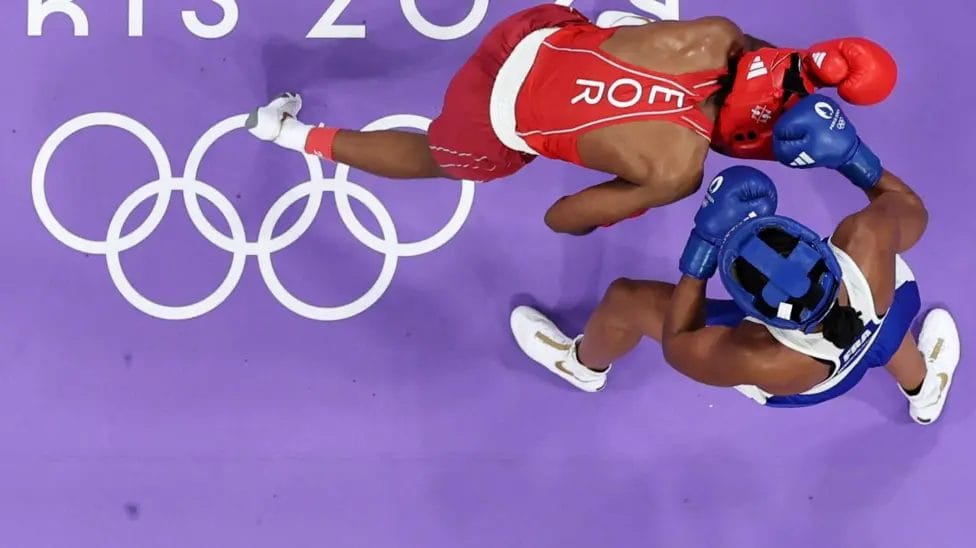
Real Madrid’s legendary status in European football is inseparable from the Champions League. With an unmatched 15 trophies in the prestigious competition, the Spanish giants have set the gold standard for success in Europe. Since its inception in 1955-56, spearheaded by then-president Santiago Bernabéu, Real Madrid has dominated the Champions League, with their most recent triumph in the 2023-24 season. No club has come close to matching their consistent success in the competition, with AC Milan trailing behind with only seven wins. But what is it that sets Madrid apart and propels them to such dominance in European football?
Former Germany midfielder Sami Khedira, who was part of the squad that helped Real Madrid secure their 10th Champions League title in 2013-14, offers unique insight into the expectations placed on players at Madrid. Khedira believes that joining the club means there is an implicit demand to win the most coveted trophy in club football. As he puts it in the new BBC documentary How to Win the Champions League: Real Madrid, “You have to bring something back to the shirt – you have to win.” This mentality is deeply ingrained within the culture of the club, where success in the Champions League is considered a non-negotiable goal.
The Weight of Expectations at Real Madrid
Real Madrid’s pursuit of the Champions League is more than just a sporting ambition; it is a deeply ingrained part of the club’s identity. Since its first Champions League triumph in 1955-56, the club has consistently delivered top-level performances to claim the most coveted prize in European football. The pressure placed on players, particularly those joining the club, is immense. For a club like Real Madrid, playing at the highest level of the Champions League is seen as part of the club’s DNA, and players are expected to perform accordingly.
As Khedira explains, this pressure to succeed is part of what it means to wear the famous white shirt. Every new signing, from big-name Galacticos to rising stars, understands that their arrival at the Santiago Bernabéu comes with the burden of winning the Champions League. For Madrid fans, the team’s performance in Europe is the ultimate measure of success.
Real Madrid’s Early Domination in the Champions League

Real Madrid’s historical dominance in the Champions League started with the visionary leadership of Santiago Bernabéu. In the 1950s, Bernabéu, alongside other football pioneers, helped create the competition we know today as the Champions League. Under his leadership, the club secured the first five European Cups (now the Champions League) from 1955-1960—a feat that remains unmatched in the competition’s history. The squad of the time, including legends like Alfredo Di Stefano, Francisco ‘Paco’ Gento, and Ferenc Puskas, became the foundation of the club’s European success.
From the outset, Real Madrid’s ambition in the Champions League was clear. Their dominance in the early years set the tone for the club’s long-standing relationship with European football. These victories helped solidify Real Madrid as the benchmark for success in the Champions League, creating a standard that future generations of players would strive to match.
The 1997-98 Champions League: A Turning Point for Real Madrid

After a 32-year drought without a Champions League title, Real Madrid experienced a resurgence in the 1990s. The club’s return to European glory came in 1998, when they defeated Juventus 1-0 in the final. This victory marked the start of a new era for Madrid, as the team began to reclaim its place among Europe’s elite. The addition of key players such as Roberto Carlos, Davor Šuker, and Clarence Seedorf helped build a squad capable of competing at the highest level in the Champions League.
This victory in 1998 was crucial not only for Madrid’s revival but also for the club’s sense of pride. As former president Ramón Calderón recalls, “We didn’t think really that we were going to win that title, but from that moment, we started to recover our pride.” The Champions League title gave Madrid renewed confidence and propelled them into a new chapter of European success, culminating in two more European trophies between 1998-2002.
Florentino Pérez and the Modern Galacticos

The arrival of Florentino Pérez as president in 2000 marked the beginning of a new chapter in Real Madrid’s history. Pérez’s ambitious approach to building a squad of superstars, dubbed the ‘Galacticos,’ reshaped the club’s standing in European football. His strategy was simple: bring in the best players in the world and win the Champions League.
Pérez’s first Galactico signing was Portuguese forward Luís Figo, who made a shock move from Barcelona to Madrid in 2000 for a then-world record transfer fee. This was followed by the signings of Zinedine Zidane, Ronaldo, and David Beckham, all of whom became household names. However, despite the star power, the club only secured one Champions League title during this period, in 2002.
While Pérez’s Galactico strategy helped raise the club’s global profile, it was also criticized for being overly reliant on individual talent rather than fostering a cohesive team. As former president Calderón explains, “Work always beats talent when talent doesn’t work.” This period in Real Madrid’s history highlighted the delicate balance between star power and team dynamics, especially in the high-stakes environment of the Champions League.
The Modern Galactico: A New Approach
In recent years, Pérez has adapted his approach, shifting from purchasing established superstars to focusing on younger, high-potential talents. Players like Vinícius Jr., signed in 2018 for £38.7 million, and Jude Bellingham, acquired in 2023 for £88.5 million, represent the new era of “modern Galacticos” at Madrid. These young players have not only brought energy to the squad but have also played pivotal roles in Real Madrid’s recent Champions League successes.
As journalist Graham Hunter notes, Pérez’s latest strategy has focused on signing young talent at an elite level, ensuring that the club remains competitive in the Champions League for years to come. Bellingham’s standout performances in his first season at Madrid, where he was the club’s top scorer and helped them win the Spanish league and secure their 15th Champions League title, exemplify the success of this approach.
Ancelotti: The Perfect Figure for Madrid’s Champions League Ambitions

Carlo Ancelotti, who is currently in his second spell as Real Madrid manager, is widely regarded as the ideal figure for leading the team to continued success in the Champions League. Ancelotti first took over in 2013 and led Madrid to their long-awaited 10th Champions League trophy in his first season. His leadership style, described as humble and quiet, allows him to manage the complex personalities in the dressing room while keeping the focus on the team’s collective goals.
Ancelotti’s ability to balance player egos and foster a cohesive team dynamic has been key to Madrid’s recent triumphs. Under his guidance, Madrid secured back-to-back Champions League titles in 2021-22 and 2023-24, further cementing his legacy as one of the most successful managers in the club’s history. His approach to management, which encourages open conversation and shared responsibility among players, is reminiscent of the qualities that made Zinedine Zidane so successful during his tenure.
Conclusion: The Pressure to Win the Champions League at Madrid
Real Madrid’s legacy in the Champions League is built on a foundation of success, ambition, and the relentless drive to win. The club’s long history of European dominance has created an environment where players know that success in the Champions League is expected, and anything less is deemed a failure. From the early years of Bernabéu’s visionary leadership to the modern Galacticos era, Real Madrid has constantly evolved while maintaining its focus on winning the most prestigious trophy in European club football. With Ancelotti at the helm and a new generation of young stars like Bellingham and Vinícius Jr., the club’s pursuit of Champions League glory is far from over, ensuring that their legacy will continue to shine brightly for years to come.








